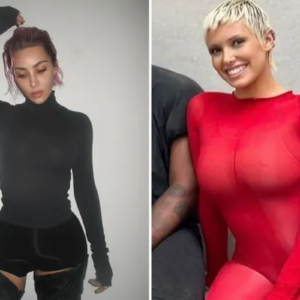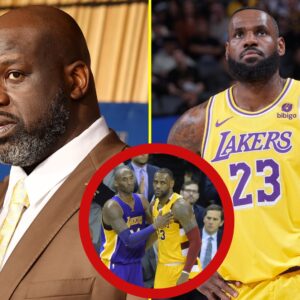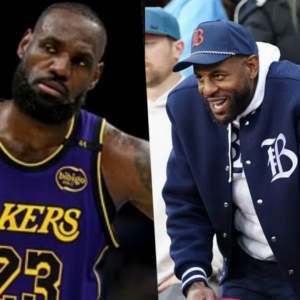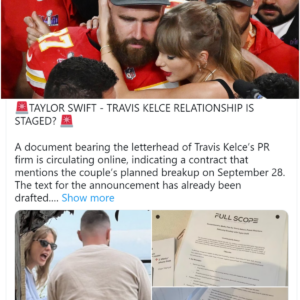A lack of social connection has been identified as one of the leading causes of mental health disorders in this country. Studies have found that 43 percent of people over 60 feel lonely, and more young men are single and without close friends than ever before. Other studies have found that positive social relationships are intertwined with our physical health.
Of all the people experiencing social isolation, the person who is arguably the loneliest also happens to be one of the most powerful—Elon Musk.
While this sounds frivolous, especially when regulatory bodies like the Federal Trade Commission and the National Highway Traffic Safety Administration are pushing for investigations and fines related to the privacy and safety practices of several of his companies, it is worth calling out that a very isolated man is running a huge social networking platform. Even with at least 10 children, tens of thousands of employees, hundreds of millions of followers on X, and an entourage of staff and security, the reality is that never being alone does not mean you are not lonely.
When Elon Musk arrived at Twitter’s headquarters for the first time, he was disgusted by the yoga rooms, the coffee bars, and the emphasis on psychological safety. “Musk let loose a bitter laugh when he heard the phrase ‘psychological safety,'” wrote his biographer Walter Isaacson. “It made him recoil.”
On one level, this makes sense. Musk grew up with an emotionally abusive father and a peer group that resembled the Lord of the Flies. At school, he was pushed down a flight of concrete steps and beaten so badly he was hospitalized. But Musk punishing his employees will never make up for his tragic childhood.
Tying psychological safety to a lack of technical innovation ignores extensive research that shows the opposite. According to McKinsey, “psychological safety is consistently one of the strongest predictors of team performance, productivity, quality, safety, creativity, and innovation.”
Last year during the Super Bowl, Musk tweeted about the game. Another prominent user tweeted, too—President Joe Biden. Biden’s tweet saw 29 million impressions, while Musk’s tweet only saw 9.1 million impressions. This led him to swiftly delete his tweet and mobilize engineers to look into why his tweets were not getting as much interaction as the president’s. Those who tried to point out that Musk was simply less popular than he used to be were fired. Musk has lieutenants around him, but his inner circle has yes-people who will do his bidding regardless of whether it is grounded in reality or not.

At a moment when Twitter was more glitchy than it had been in recent history, Musk chose to prioritize his own engagement rather than the stability of the platform. He wanted users on X to see his content, and to love it. His personal user preferences have always been at the center of the product he builds, whether it is seeing his name at the top of a popular social platform or making it possible to play video games in his Tesla. A social platform allows him to fulfill both fantasies of making a fun user experience for himself and becoming a beloved standup comic.
According to a former employee who worked closely with Elon Musk during the Twitter takeover, Musk is first and foremost a quality control guy. At Tesla, this might be an asset. Tesla engineers can tweak Musk’s car all day and it won’t negatively impact other Tesla owners. But social media is zero sum. The more X engineers tweak the algorithm to prioritize Musk’s experience, the worse off the rest of the user base becomes.
Sign up for Newsweek’s daily headlines
And what has been the result? Recently, Musk went on an erratic tirade about advertisers withdrawing their support from X over concerns that hate speech would flow freely on the platform. X’s Chief Executive Linda Yaccarino, did not do much better at the Code Conference, where it was obvious that she had little actual data about the company’s users. Hundreds of Twitter employees have resigned. Regulators in the European Union have opened a formal investigation into the proliferation of misinformation on the platform. Just recently it was reported that X’s revenue has dipped to $2.5 billion in the wake of boycotts.
X as a global communication platform needs to convince advertisers to return, eliminate bad bots like spam crypto accounts, and scrub the spread of misinformation and hate speech ahead of the 2024 election.
If Musk did not project his insecurities onto the rest of us through X, his loneliness would be sad but benign. Instead, Musk’s desperate need to inject himself into every conversation sends a signal that the way to combat loneliness is to seek attention. He may not be to blame for our culture’s lack of social connection, but rather than being part of the solution, he’s part of the problem.
To combat loneliness, we are encouraging older people to make new friends, promoting sports and friendship for lonely young men, and urging adolescents to limit their screen time. Maybe we should think about prescribing the same to Elon Musk.
Zoë Schiffer is the managing editor of Platformer and the author of Extremely Hardcore: Inside Elon Musk’s Twitter.
Ariella Steinhorn is a writer and the founder of Superposition, which brings forward stories about power, and Nonlinear Love, which tells unconventional love stories.
News
Kim Kardashian shows off her curves and continues to plug controversial $60k Cybertruck – as the Tesla vehicle is plagued with safety problems
Kim Kardashian showed off her toned curves in a skimpy ensemble as she continued to plug her controversial $60k Tesla Cybertruck – amid mounting problems with the vehicle line. The…
Kim Kardashian unveils millennial pink bob in gritty photo shoot… after bleach blonde hair left her looking like Kanye West’s new wife Bianca Censori
Kim Kardashian debuted her new hair in artistic, makeup-free Instagram portraits on Monday. The reality TV personality, 43, showed off her edgy new look after dying her hair a cotton candy pink…
Kim Kardashian the copycat! Reality star looks just like Kanye West’s new wife Bianca Censori with bleached hair, no bra and skimpy ‘apron’ top
Kim Kardashian looked as if she had taken a page from the stylebook of her ex-husband Kanye West’s current wife Bianca Censori during an outing in Los Angeles on Sunday. The 43-year-old reality TV icon…
Khloe Kardashian fans praise the star’s ‘flawless’ figure as she rocks a tiny black bikini while on a yacht
Khloe Kardashian has stunned fans as she rocked a teeny tiny bikini during a yacht ride. In a new Instagram post, Khloe, 39, shared a snapshot of herself in a black…
Kim Kardashian critics say she’s ‘morphing into’ Bianca Censori with ‘fried’ short pink hair and bodysuit in new pics
Fans have accused Kim Kardashian of morphing into her ex-husband Kanye West’s younger wife Bianca Censori in new pics. The Kardashians star recently chopped her hair and dyed…
Jennifer Lopez looks topless as she shows off her incredible body at 54 in bra with a nipple on it for sεxy new video
Jennifer Lopez ‘can’t get enough’ of flashing her bra in her sεxy new music video with rapper Latto. JLo, 54, appeared in one scene wearing a red…
End of content
No more pages to load











